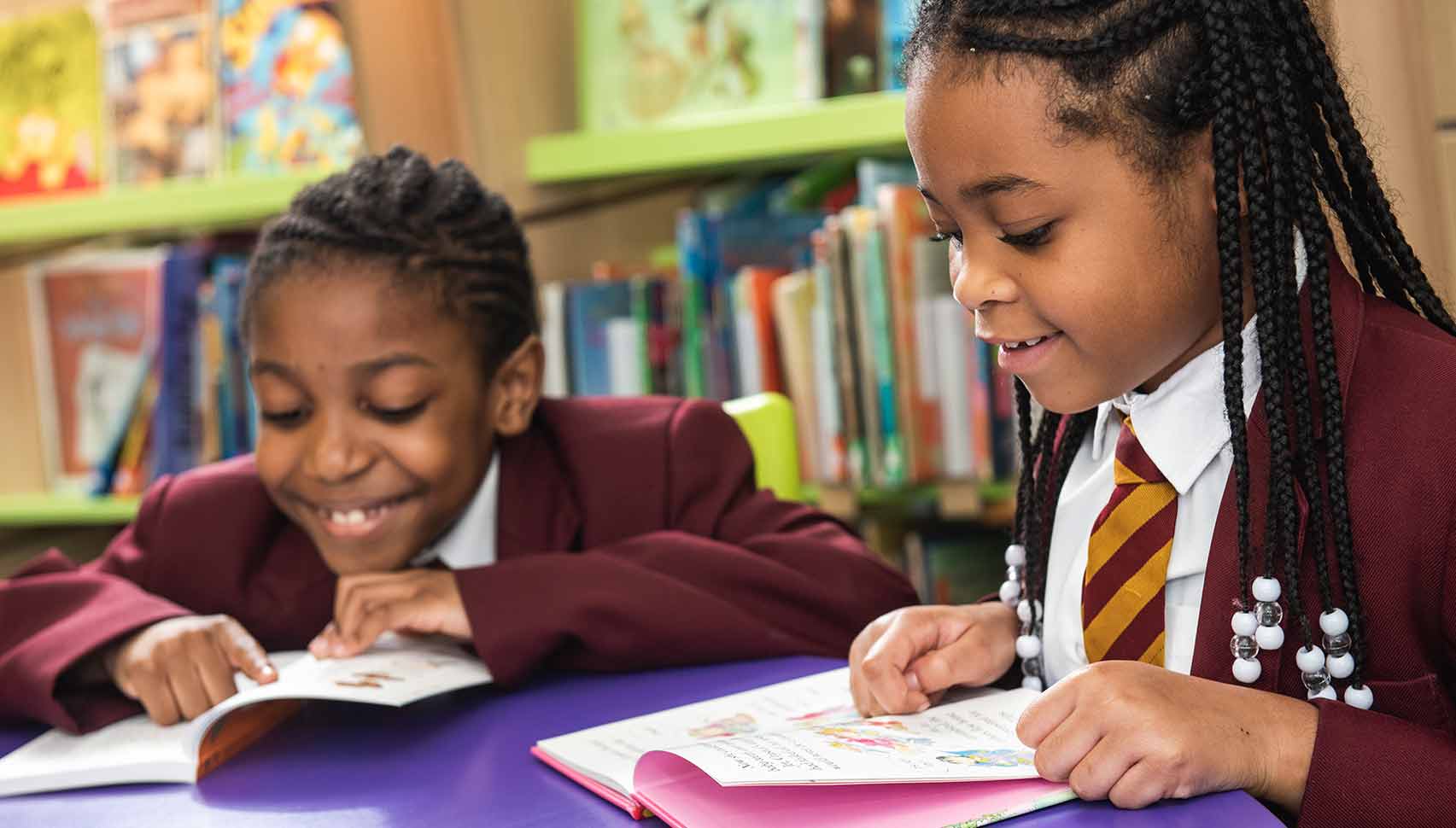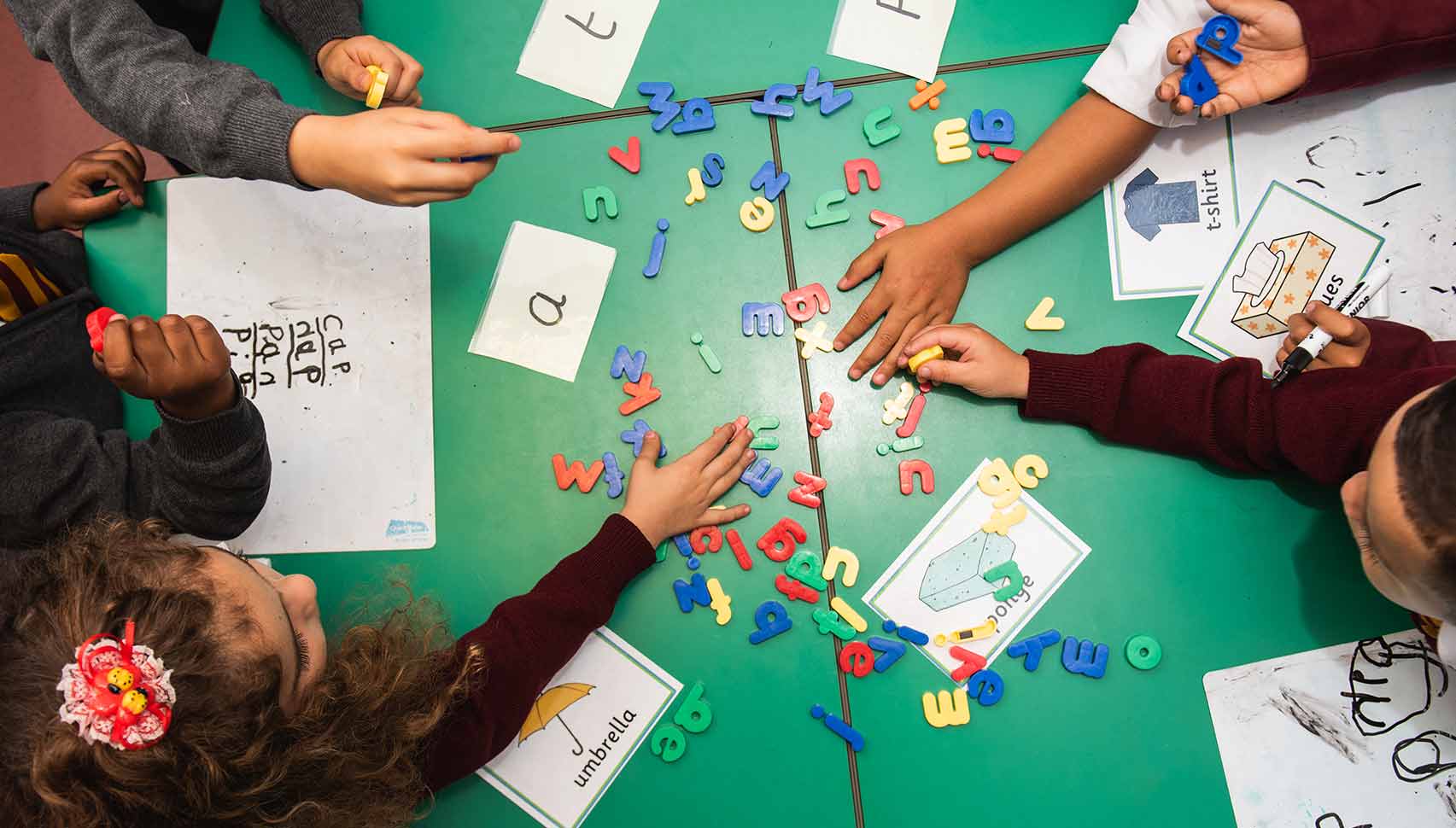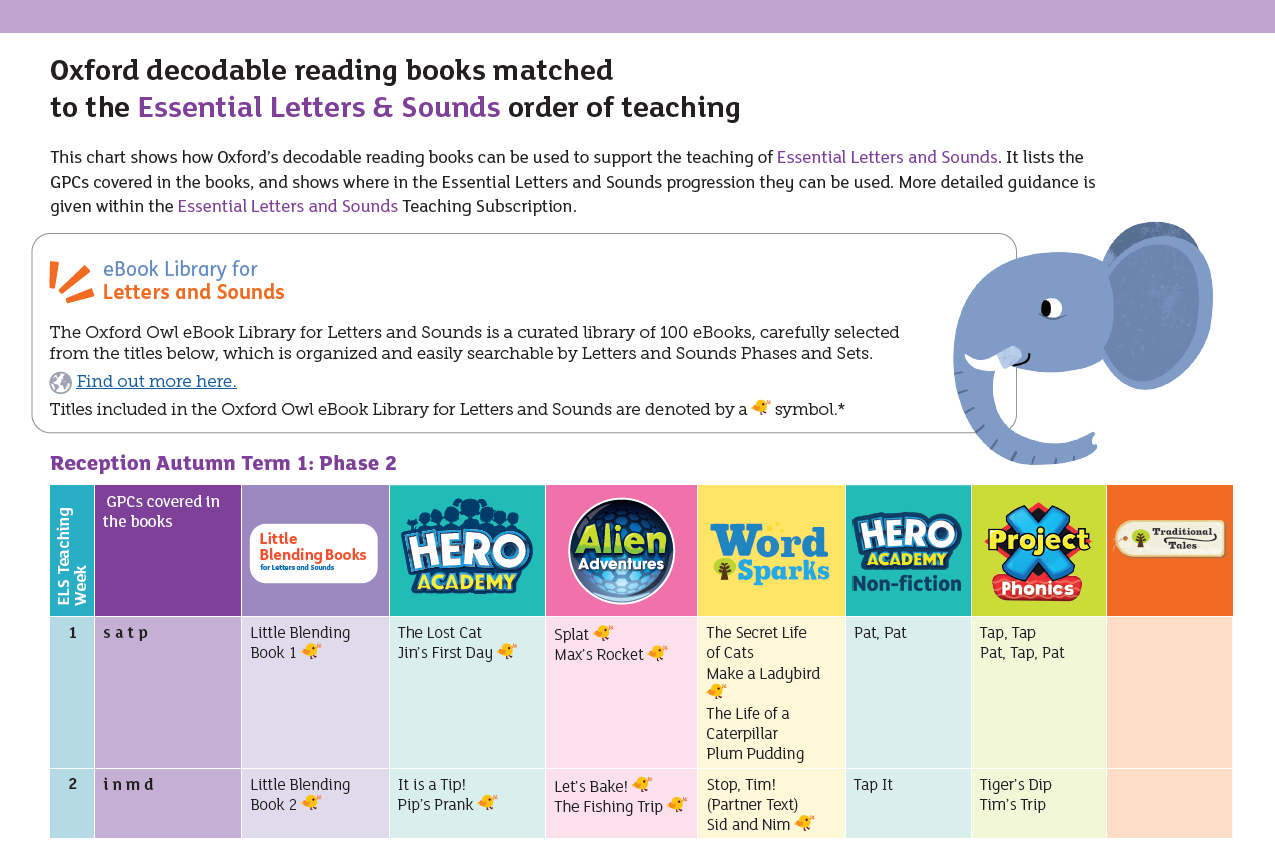Subject Leader : Tom Prescott
At Holy Trinity our aim is that all children should be strong writers, independent readers and confident speakers and listeners. We look to instill enjoyment and rich vocabulary and as much diversity as possible into our literacy curriculum.

Our Reading Mission
Reading in school
By fostering an enjoyment of books, we aim to build confidence in children’s ability to read. Reading is promoted in all elements of the school day from English and Topic to Maths and Science. In daily Reading lessons children are taught reading skills to help develop their comprehension.

In addition, they have the opportunity to challenge themselves on the books they have read by quizzing on our amazing online resource, Accelerated Reader. All children have regular access to our fantastic school library, which is stocked with an wonderful range of books from modern diverse authors, as well as with all the classics.
Early Reading and Phonics
At Holy Trinity, we provide our Phonics and Early Reading offer through the Essential Letters and Sounds programme.
This programme matches, or exceeds, the expectations of the national curriculum and the early learning goals. The sequence of reading texts, that directly links to every phase of the ELS programme, demonstrate a cumulative progression in phonics knowledge.
For children, re-reading words and sentences that they can decode (sound out) until they are fluent (read with ease and precision) is a key part of learning to read. By reading texts several times, children have the greatest opportunity to achieve this fluency.
The texts sent home are carefully matched to the teaching taking place in school. Our children will be practising what they have been taught in school with their families at home.
Reading at home
Children take books from the large selection available in the library and classroom to read at home. There is an expectation that children read at home daily. Reading journals are provided for parents to communicate their observations on their child’s reading progress with the class teacher.
In Key Stage 2, books going home reflect each child’s ability based on our rigorous assessment of every child. On completing a book, children take a quiz on Accelerated Reader at school, demonstrating their understanding by answering comprehension questions. In addition, Holy Trinity now offers the fantastic online resource MyON, with a library of over a thousand books, which can be read at home, at the touch of a button.

The teaching of reading, including the systematic teaching of synthetic phonics, begins from the minute our children arrive in Reception.
Phonics is at the heart of teaching our children to become independent readers at Holy Trinity. Children are explicitly taught the sounds related to each letter or combination of letters and learn how to apply this knowledge when reading. Both the reading and spelling of tricky or exception words are also taught so that children are encouraged to recognise these words on sight.
Writing
At Holy Trinity, we have introduced a brand new writing strategy, based on the National Literacy Trust and IPEELL structure, to improve the quality and outcomes of writing.
The first step towards becoming a fluent independent writer begins with developing a positive attitude towards writing. Using affirmations and goal setting, the children establish a positive and motivated mind set before writing. Children develop a deeper understanding of the text type and genre by using PAT (purpose, audience and type) which is applied when starting a new unit of writing.
Before writing, the children deconstruct a model text; this enables them to develop a more analytical and guided approach to understanding the type and purpose of the text. IPEELL (Introduction, Point, Elaborate, Ending, Links, Language) provides a method and solid framework to help the child to organise their writing. Teachers explicitly model the thought process, positive self-talk, planning and composition whilst referring regularly to the IPEELL components.

Unaided independent writing then takes place using the plans and positive self-talk reminders. The IPEELL structure is also used to evaluate and score their writing, enabling them to independently edit their work and set goals. This methodical and structured approach to writing offers the opportunity for all children to become confident and aspirational writers.
At Holy Trinity, writing is inextricably linked to the topics of our bespoke curriculum, based on local topics or meaningful real life issues. Memorable experiences such as acting, educational visits, music and art ensure that children are stimulated, immersed and passionate when completing their writing tasks.
Each term, a high quality core text is used to expose the children to a diverse range of literature and to inspire enjoyment and creativity. At the beginning of each literacy lesson, children learn about Spelling, Punctuation and Grammar, which is further embedded throughout the week. Children will learn an ambitious range of tier 3 vocabulary linked to the topic and core text, as well as the statutory spellings.

